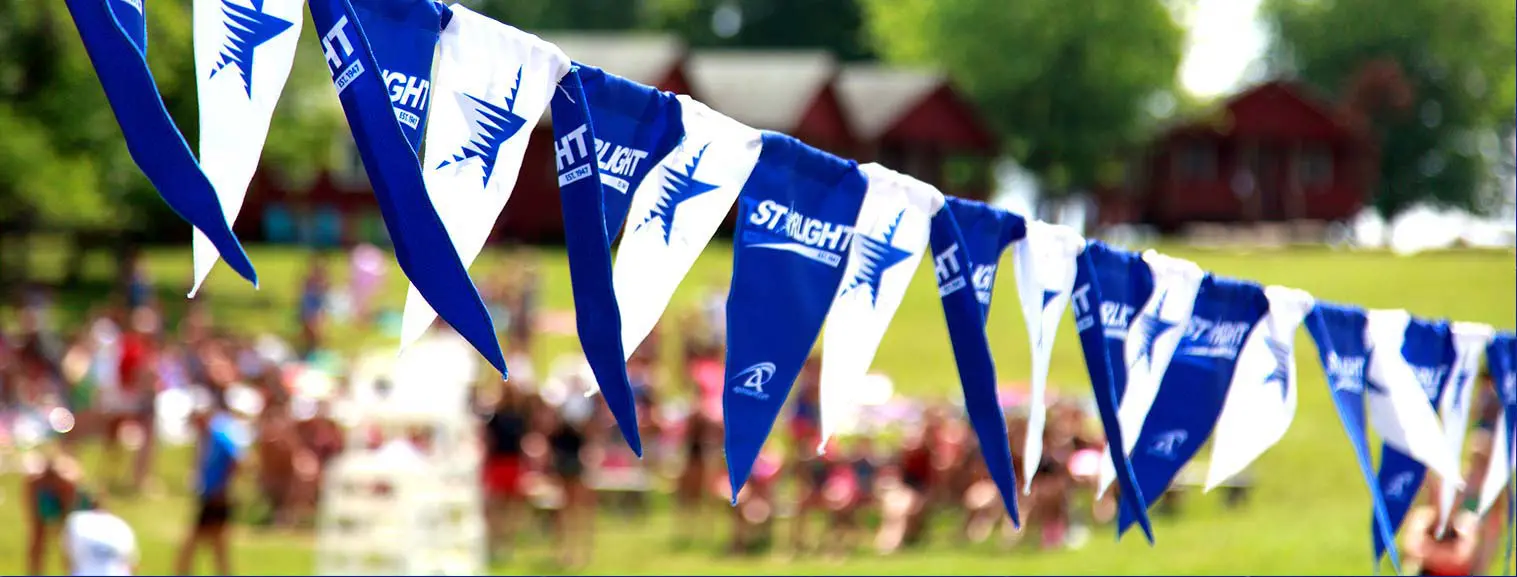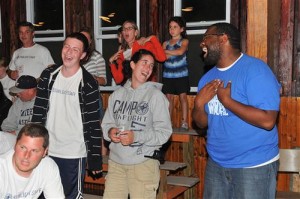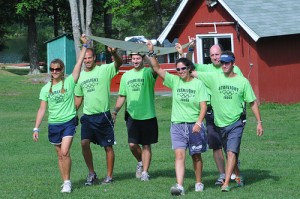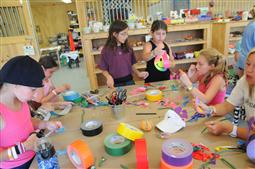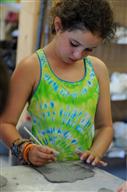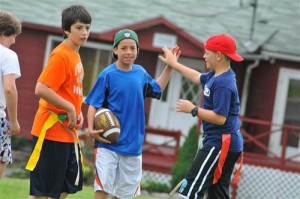 It’s no secret that summer camps offer campers the opportunity to sample many different sports, but what may not be evident is why this may be preferable to sending children to a camp at which the focus is exclusively on one sport. Dr. Jared Wood, a sports psychologist, believes children should be encouraged to try many different sports in order to find their favorites. He warns that focusing on one sport too early in youth often “unnecessarily limits a child’s interest and skill development.”
It’s no secret that summer camps offer campers the opportunity to sample many different sports, but what may not be evident is why this may be preferable to sending children to a camp at which the focus is exclusively on one sport. Dr. Jared Wood, a sports psychologist, believes children should be encouraged to try many different sports in order to find their favorites. He warns that focusing on one sport too early in youth often “unnecessarily limits a child’s interest and skill development.”
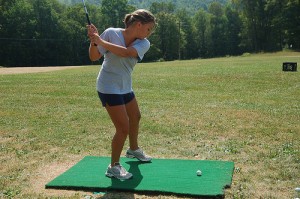 Many child development experts recommend that children be given the opportunity to try out a sport before committing to it because it’s important for them to develop their self esteem prior to joining a team and engaging in intense training. When children enter a sport with confidence, they’re more likely feel that they can do well and, therefore, strive to do well. Many summer camp sports programs subscribe to this recommended combination of skill instruction and giving children the opportunity to use those new skills on the field or court. Summer camps also emphasize skill development over winning or losing. Campers learn sports skills in a supportive atmosphere and are taught by specialists who are proficient in their respective sports Many summer camp sports programs are headed by college or high school coaches who lead counselors who played at the high school and college level. This type of approach permits campers to try out various positions and get comfortable with the rules and general flow of a sport without feeling pressured to do well by overly zealous parents and coaches.
Many child development experts recommend that children be given the opportunity to try out a sport before committing to it because it’s important for them to develop their self esteem prior to joining a team and engaging in intense training. When children enter a sport with confidence, they’re more likely feel that they can do well and, therefore, strive to do well. Many summer camp sports programs subscribe to this recommended combination of skill instruction and giving children the opportunity to use those new skills on the field or court. Summer camps also emphasize skill development over winning or losing. Campers learn sports skills in a supportive atmosphere and are taught by specialists who are proficient in their respective sports Many summer camp sports programs are headed by college or high school coaches who lead counselors who played at the high school and college level. This type of approach permits campers to try out various positions and get comfortable with the rules and general flow of a sport without feeling pressured to do well by overly zealous parents and coaches.
Another benefit of summer camp sports programs is that they offer a healthy mix of team and individual sports. Child experts point  out that some children prefer and perform at their best as part of a team while others are happier and better off playing individual sports. By being able to simultaneously sample tennis and lacrosse, for instance, campers can get a feel for which one leaves them feeling the most motivated to further develop their skills while still being able to have a healthy appreciation for the other.
out that some children prefer and perform at their best as part of a team while others are happier and better off playing individual sports. By being able to simultaneously sample tennis and lacrosse, for instance, campers can get a feel for which one leaves them feeling the most motivated to further develop their skills while still being able to have a healthy appreciation for the other.
The variety offered at summer camp also gives campers the opportunity to try sports to which they may never have been exposed or would not otherwise have the opportunity to try. Many a camper has tried a sport for the first time at summer camp and then gone on to play on a travel team, high school team, or even a college team. Sports psychologist and author, Richard Ginsburg, Ph.D., suggests that children should be at least “12 or 13” before being encouraged to commit to one sport. Dr. Wood agrees, “It’s pretty clear that early specialization is much more likely to lead to burnout than it is to a scholarship or Olympic medal.”
So when you’re determining which type of summer camp is right for your child. Consider the benefit of a summer camp that offers a diverse array of sports that will permit your child to sample a variety of choices.
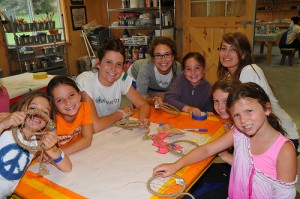 Do you ever wonder what happens at camp when it rains? We assure you, it’s nothing like those scenes in movies that depict bummed out campers forced to spend entire days in their cabins or bunks . Typically, it doesn’t rain all that often in the northeast during the summer and, whenever possible, activities proceed as planned. We never let a few sprinkles get in the way of our regular activities. But on those rare days when there is just no way around it, we’re ready!
Do you ever wonder what happens at camp when it rains? We assure you, it’s nothing like those scenes in movies that depict bummed out campers forced to spend entire days in their cabins or bunks . Typically, it doesn’t rain all that often in the northeast during the summer and, whenever possible, activities proceed as planned. We never let a few sprinkles get in the way of our regular activities. But on those rare days when there is just no way around it, we’re ready!


